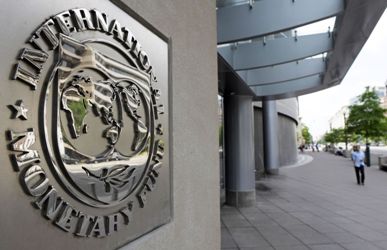Sudan seeks $250 million IMF loan to boost economic growth
May 28, 2024 (NAIROBI) – South Sudan is seeking a $250 million loan from the International Monetary Fund (IMF) to stimulate economic growth.
Speaking at the African Development Bank’s annual meetings in Nairobi, Kenya on Tuesday, South Sudan’s Central Bank Governor, James Alic Garang said the young nation is urgency in need of securing this alternative financial support.
“We are facing severe challenges with our oil exports, which constitute about 90% of our revenue,” Garang said, adding “The impact on our economy is profound, reducing the volume of oil available for international markets and decreasing the hard currency inflow essential for meeting our obligations.”
South Sudan’s oil-dependent economy has been affected by the war in Sudan since the pipeline, which transports most of its crude oil was damaged in February.
Since 2020, South Sudan has received three rapid credit facilities from the IMF.
Garang said meeting the IMF’s policy requirements is crucial to secure the funds.
“We have already delivered an audit of the central bank’s financial statements for 2021,” he said was quoted adding, “However, there are still areas where we need to intensify our efforts. With the IMF, there is no free lunch. We’re working very hard to meet those policy requirements.”
According to Garang, South Sudan is in discussions with Qatar for a resolution following a $1 billion court award to Qatar National Bank over a defaulted loan.
The case stems from a $700 million loan the Qatar bank gave South Sudan in 2012.
In 2015, however, the world’s youngest nation entered into another agreement with QNB on how it intended to repay the loan it had borrowed. The loan was restructured in 2016 and supplemented in 2018 after South Sudan requested for more money to be repaid within 15 years starting in 2019.
Since then, South Sudan had defaulted on repayment of the loan, prompting the Qatar-based bank to lodge a legal complaint against the East African nation.
QNB filed the case against South Sudan and the Bank of South Sudan on October 7, 2020 (ICSID/Arb/20/40) and the tribunal was fully constituted on March 24, 2021.
“We are negotiating to pay part of it, but we’ll still need to settle this debt,” said Garang.
When South Sudan split from Sudan in July 2011 following a decades-long war of secession, it lost over three-quarters of the oil reserves. But years of civil war after independence, including for control of key oil fields, deprived the East African nation of vital income and the chance to diversify its oil-dependent economy.
(ST)

